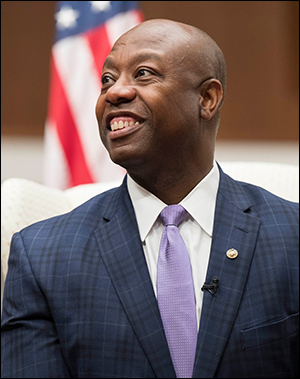By Jim Ellis — Thursday, April 11, 2024
Senate
Montana: Sheehy Edges Tester in New Poll — JL Partners returned a poll for the Montana State News Bureau (March 26-29; 503 likely Montana voters) and, for the first time this year, data shows the Republican challenger leading Sen. Jon Tester (D) as he attempts to secure a fourth term.The survey finds presumptive Republican nominee Tim Sheehy, an aerospace company CEO and retired Navy SEAL, edging the senator 48-45 percent in one of the most important races to determine the next Senate majority.
The questionnaire did not contain a question about the presidential race, but Montana is again expected to be one of former President Donald Trump’s strongest states. Thus, a favorable Republican turnout model will also elevate Sheehy’s chances.
House
CA-20: Appeals Court Upholds Pro-Fong Ruling — A California appellate court upheld the lower court ruling that allowed Assemblyman Vince Fong (R-Bakersfield) to compete in the congressional race after he was certified as a candidate for state Assembly. The Secretary of State barred Fong from entering the regular congressional primary under the premise that an individual cannot seek two public offices simultaneously. Through court ruling, Fong, in fact, did seek both offices, placing first in the congressional regular election and runoff, while running unopposed for the Assembly.
The appellate court ruling for the state would have sent the Central Valley political situation into chaos and, as the judges stated, would have invalidated a legitimate election. Such a move would have led to even more ambiguity, confusion, and additional special elections not only for the vacant US House seat, but also for Fong’s Assembly district should the assemblyman successfully win the congressional special election set for May 21. At this time, he is favored to win both the special and general election. Upon winning the special, Fong would immediately replace former Rep. Kevin McCarthy (R), who resigned.
It is possible that Secretary of State Shirley Weber (D) could still continue along the appellate process, hopefully, from her perspective, convincing the state Supreme Court to address the matter. Unless that happens, Fong is likely headed to Congress.
FL-15: Candidate Comes Forth to Challenge Rep. Lee — In March, former President Trump called upon Tampa Bay area Republicans to field a primary challenger to freshman Rep. Laurel Lee (R-Tampa) because she endorsed Florida Gov. Ron DeSantis in the ’24 presidential campaign. Now, James Judge, who ran in the area’s 14th District against entrenched Rep. Kathy Castor (D-Tampa) in 2022, is answering the call and will switch districts. He began the ’24 election cycle attempting to challenge Rep. Gus Bilirakis (R-Palm Harbor) in adjacent District 12.
Rep. Lee should still be considered a heavy favorite, however. Judge, running in a D+14 district according to the FiveThirtyEight data organization, recorded 43 percent of the vote against Rep. Castor. This is the type of performance one would expect for a Republican congressional nominee in such a Democratic district. Additionally, he spent just over $200,000 for that race, indicating he doesn’t have much fundraising ability, and a judge had to award him ballot placement in the 2022 election because he did not file the proper candidate forms, which originally led to his disqualification.
Rep. Lee was elected to the House with 59 percent of the vote in the last election from a district that 538 rates as R+7, but one that Trump carried only 51-48 percent. Prior to running for Congress, Lee served as a Circuit Court judge and as secretary of state when Gov. DeSantis appointed her to the position. In 2022, she won a five-way open Republican primary by just under 14 points against her closest competitor.






